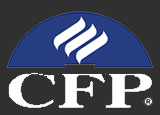The Wealth Effect!
The Wall Street Journal is my paper of choice. I get the online version and one of the primary perks of that is a morning email sent every weekday titled, The Daily Shot. The Daily Shot or DS is worth the price of the whole subscription. The DS sent on October 31 had a few charts which shows that we may be experiencing what Behavioral Finance defines as The Wealth Effect. We will cover The Wealth Effect this month and see how it might be affecting our personal financial behavior.
The charts in question show that as of last month, the US Household Savings Rate had fallen to just 3%, the lowest level in ten years. At the same time, households are saving less, we are spending more. Pretty simple, if you are not saving it, you must be spending it. Real Personal Consumption Expenditures (Spending) surprised to the upside with a .6% uptick in September and is at its highest level since the start of the measurement in January 1999.[i] The two measures are obviously related; not saving, more spending. My job is to help make sure we are not a party to this foolishness—or, if nothing else, make you feel guilty about it.
Perhaps a reason for our increased spending and decreased saving rates lies with a third chart DS delivered that day; titled, “US Households Net Worth as a Percentage of Disposable Income.” This long-winded statistic describes a typical Household’s net worth, compared to its disposable Income. The measure expresses that ratio as a percentage and currently, it is at the highest rate since they started measuring in 1951 at 670.4%.[ii] In other words, our disposable income is a very small percent of our overall net worth. Knowing this subconsciously, we say to ourselves, “sure—what the heck, I can afford to buy that expensive and fancy little widget—I am worth a ton of money!” (Warning: Do not go in the office tomorrow and casually start up a conversation with, “wow, how about the US Households Net Worth as a Percentage of Disposable Personal Income, it is so high lately, what gives?” The geek factor on stuff like that is high.)
This is the very definition of The Wealth Effect. Our wealth makes us feel okay about spending more and saving less because we feel financially comfortable. Included in Net Worth among other things are the value of real-estate and the value of all investments. While income has not been growing that much, our property values are returning to and even surpassing pre-2008 levels and our investment balances are having a virtual party these last five years.
We are informed by our monthly-statements or online account access how much money we have in our IRA’s, 401K’s, 457’s, and investment accounts. Naturally, we feel joyful and start spending money like pro-football players. (Here is where I try to make you feel uncomfortable again.)
First, always remember that those big numbers in qualified retirement accounts are pre-tax. In your mind consider them joint accounts—you share ownership with the IRS, the Maryland Comptroller of the Treasure, the County Treasurer, and if you live in an incorporated town, the Local Town comptroller. They know you have it and they have designs on it of their own. When you start to withdraw money count on giving about 10 to 40% away to your favorite governmental entities.
Inflation is another drain on account values. It reduces the worth all your cash and investments, regardless of what type of account. Inflation has been lying low in recent years but there are some signs that it is starting to raise its head again. In fact, the Federal Reserve targets 2% inflation as a goal and they are doing whatever they can get it up there. A $1,000 invoice today would be $1,219 ten years from now at 2% inflation per year.
Moreover, the fact that your house may be worth more today than it was ten years ago is somewhat irrelevant to your future cash flow. Unless you are going to sell your home, the equity in it is not usable (notwithstanding a reverse mortgage.) You must live somewhere. And if the plan is to downsize into a condo in Florida, please look at what a decent one in Florida is going for. Like your house, that condo has also gone up in value the last 10 years—a lot! There are about 4 million baby-boomers retiring every year and Florida is where a lot of them are looking to move. High demand equals high cost.
Bottom line, we are probably not as wealthy as we think. And the future is, well, the future. As Yogi Berra used to say, “it’s tough to make predictions, especially about the future.” Markets fluctuate, jobs disappear, medical issues come up, and sometimes bad financial things happen to good people. Have respect for your income; it is not “disposable.” Right now, it is bright and sunny, but we know from history there will be rain.
[i] https://fred.stlouisfed.org/series/PCEC96
[ii] https://fred.stlouisfed.org/series/HNONWPDPI


